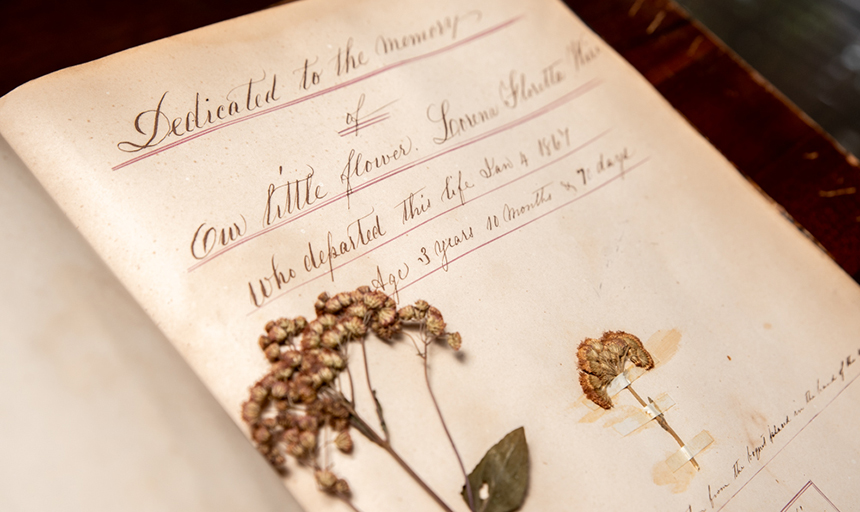
By Jesse Bucher, college historian | bucher@roanoke.edu
It may seem safe to assume that student-faculty research is a modern phenomenon, but some of the first students at Roanoke College were also researchers — even if they weren't attending conferences or submitting articles to publications at the same rate as today’s students.
Earlier generations of Roanoke students, especially those who studied here in the mid-19th century, had very different academic research experiences. A common activity, especially in courses devoted to the natural sciences, was to engage in local outdoor field research. In these outings to Masons Cove, Bennett Springs, Fort Lewis Mountain and other spots, students could observe and gather local flora before returning to campus to review samples of their botanical discoveries. Other student outings at that time yielded tree saplings that later flourished on campus, including the famed Bittle tulip poplar. Recent efforts by students and faculty to document and form a digital catalog of campus trees have helped sustain a longstanding campus devotion to botanical research.
 While very few examples of student scholarship from that time period survive today, the Roanoke College archive does possess a truly unique and extraordinarily intact botanical scrapbook assembled by a member of the Class of 1862, William C. Wire, between 1858 and 1867. Although we do not know if Wire first began the specimen book as part of his formal studies at the College, its form and format reconcile with the kind of research 19th century students would have conducted. Elegant photos of the scrapbook taken by multimedia producer Griffin Pivarunas ’16 capture the complex beauty of Wire’s collection. The detailed handwritten labels, exquisitely preserved plant and flower specimens, and carefully glued affixing straps demonstrate the seriousness Wire gave to his collection.
While very few examples of student scholarship from that time period survive today, the Roanoke College archive does possess a truly unique and extraordinarily intact botanical scrapbook assembled by a member of the Class of 1862, William C. Wire, between 1858 and 1867. Although we do not know if Wire first began the specimen book as part of his formal studies at the College, its form and format reconcile with the kind of research 19th century students would have conducted. Elegant photos of the scrapbook taken by multimedia producer Griffin Pivarunas ’16 capture the complex beauty of Wire’s collection. The detailed handwritten labels, exquisitely preserved plant and flower specimens, and carefully glued affixing straps demonstrate the seriousness Wire gave to his collection.
The final page of Wire’s specimen book adds a different, emotionally jarring, and somber tone to the otherwise scientific proceedings. The last floral specimen in the book came from the bouquet held by Wise’s young daughter during her funeral in 1867. Beneath the pressed flower, Wire skipped the plant name and instead wrote: “Dedicated to the memory of our little flower Lorena Floretta Wire who departed this life Jan 4, 1867 Age 3 years, 10 months, and 70 days.” This final addition to Wire's cherished specimen book, as well as Lorena’s middle name ‘Floretta’ (a Latin name for flower), show the depth of Wire’s devotion to his beloved flowers.